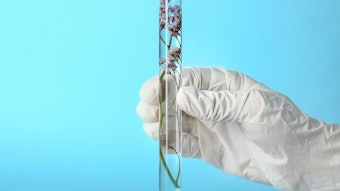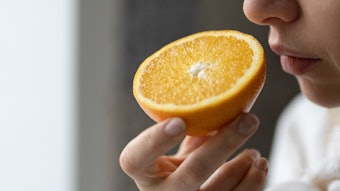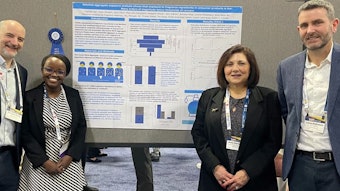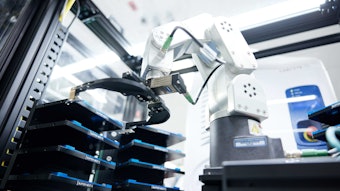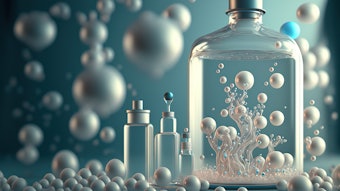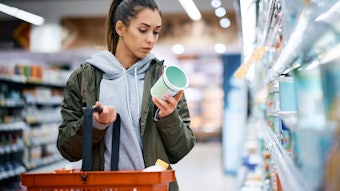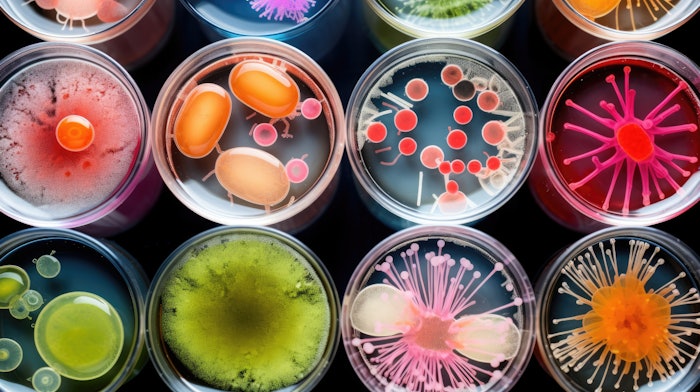
The fragrance industry, that last bastion of secrecy in beauty, has long subscribed to the adage that one must not let daylight in upon the magic. Fragrance, after all, sells emotions, memories, and desires, and too much explanation could break the spell.
This is an opinion piece by Joshua Britton, Ph.D., founder and CEO of Debut
All that made sense in the perfumery of yore, when agriculture-intensive harvesting details were proof of committed craftsmanship: 250,000 petals needed to create five milliliters of rose oil, fifteen years before sandalwood trees reached maturity, at which point essential oil production could begin. But that was before climate change, compromised biodiversity and diminishing natural resources, and terms such as “environmental footprint” and “carbon-neutral” entered the daily lexicon. And it was also before transparency swept through every category in beauty–that is, except fragrance.
Read this article in the March 2024 issue!
Now, changes are brewing in European regulations that threaten to limit access to many of the fragrance industry’s adored raw materials, especially naturals. Fragrance proposals, that include safeguard clauses for naturals, fall under the European Green Deal whose aim is to make Europe the first climate-neutral continent by 2050. Any changes could potentially impact 80% of fragrances on the market including the greats, according to estimates, and have ripple effects worldwide.
What’s an understandably alarmed industry to do?
Biotechnology will shine radiant sunlight into the fragrance industry and address, with exquisite precision, the many urgent challenges it faces. With advanced technology and a mastery of biology (not just chemistry), biotech is equipped to protect the perfumer’s palette and catapult the art of perfumery to new levels of alchemy. And it all begins and ends with biotech’s radical transparency.
Consumers are driving this momentum for increased transparency. They are scrutinizing ingredient labels and seeking brands that invest in sustainable and ethical ingredient sourcing. Meanwhile, their love affair with naturals, including essential oils, plant extracts and absolutes, continues unabated. Demand for naturals is rapidly outpacing supply. So, what gives?
Only biotechnology is equipped to reconcile these two diametrically opposing needs: the innate consumer drive for naturalness and the unsustainable pressure on the planet’s dwindling natural resources.
 As with any breakthrough technology, clear and accessible education is needed around the advent of biotech fragrance ingredients.Adobe Stock
As with any breakthrough technology, clear and accessible education is needed around the advent of biotech fragrance ingredients.Adobe Stock
Biotech is the only solution to halting the extraction of natural ingredients, especially those that are scarce and difficult to source, or are structurally complex and cannot be reconstituted renewably in the lab. It also enables the industry to move away from its dependence on fossil fuel-based synthetics. Biotechnology creates biobased molecules that mirror the olfactive signature of naturals, thereby reducing the environmental footprint of the industry, including land use and water use. Moreover, advanced biomanufacturing processes incorporate all the hallmarks of transparency: safety, purity, consistency, and supply chain reliability are hardwired in every manufacturing step.
By creating bio-identical ingredients, biotechnology will enable the fragrance industry to transition to near 100% bio-based formulas, a target that beauty leaders, forward thinkers and innovators are already implementing. Bio-identical ingredients are genetic facsimiles of molecules that exist in nature. During the biomanufacturing process, the input is natural, the vehicle that makes the molecule is natural, and the end product–the ingredients–is also natural. Zero compromises are needed by eco-conscious consumers: naturalness, purity, safety, responsible sourcing, and petrochemical-free in a fragrance bottle, combined with the multifaceted, full-bodied quality of naturals.
As with any breakthrough technology, clear and accessible education is needed around the advent of biotech fragrance ingredients. But the world is now more than ready for the intuitive sense of the Venn diagram that features biotechnology in the center of two overlapping circles, with nature on the left and technology on the right.
Biotechnology, in tandem with artificial intelligence (AI), is also the gateway to radical beauty when it comes to creating completely novel ingredients, the likes of which have never been smelled before. Imagine genomic-enhanced fragrances that are scientifically proven to activate your body’s sensors, so you are biologically designed to fall in love with it. Or analyzing a person’s DNA and then creating a hyper-personalized fragrance that makes one feel truly seen and known. Biotechnology is the game-changer that is reimagining fragrance’s future with proprietary fragrance molecules that create a huge intellectual property moat.
Biotech-engineered ingredients will unlock new fragrance possibilities to touch the souls of consumers. Perfumery will never be the same again, and for all the most desired and welcome reasons.

